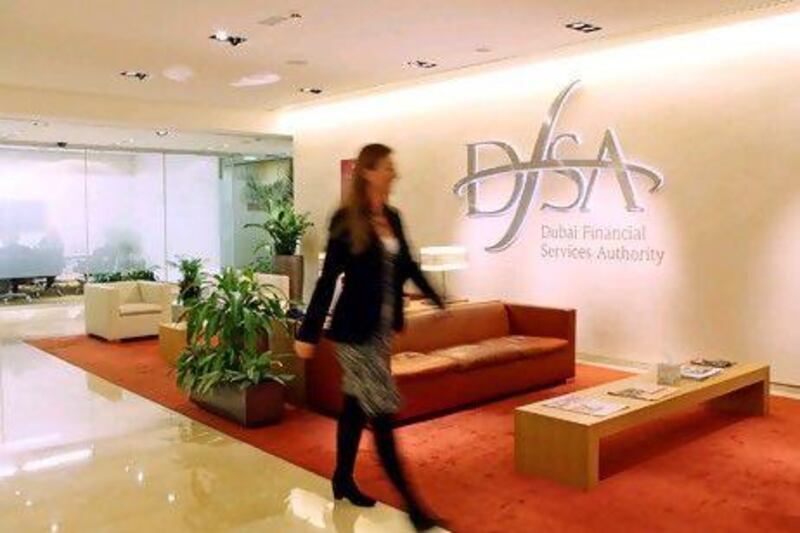Saxo Bank Dubai has been censured by the regulator of the Dubai International Financial Centre (DIFC) for failing to adhere to rules designed to prevent money laundering.
The Dubai Financial Services Authority (DFSA) said Saxo Bank Dubai, a unit of the Danish investment bank, had failed to perform due diligence on clients and monitor transactions, among other breaches.
"These failings increased the risk of [Saxo Bank Dubai's] Dubai International Financial Centre business being used for the purposes of money laundering," the DFSA said. "However, the DFSA found no evidence of any money laundering having taken place."
Stephen Glynn, the head of enforcement at the DFSA, said an investigation into Saxo Bank Dubai's procedures came about during a "thematic review" of companies in the DIFC, designed to test safeguards against money laundering.
The company's mistake was in believing it could route all clients through its parent company in Denmark, Mr Glynn said.
"Professional advisers gave them some advice and as a result they believed their only client was Saxo Bank in Denmark," he said. "They didn't carry out any due diligence they should have on those clients", in contravention of DFSA rules.
Saxo Bank Dubai referred 110 clients to the Denmark headquarters since it was registered on 19 April 2009, according to the DFSA.
Yesterday's censure did not involve any financial penalty, but Saxo Bank Dubai has agreed to appoint advisers to improve its monitoring and registration of clients, amended its internal controls and will pay a "proportion of the DFSA's regulatory costs".
Money laundering and terrorist financing have been identified as some of the top risks to the DIFC's reputation, so more resources have been devoted to finding companies that are not in compliance with its rules, Mr Glynn said.
The DFSA has been increasing its measures against money laundering and monitoring over the past year as governments around the world put greater pressure on Iran to stop its uranium enrichment programme, and warnings were issued from different countries and the UN about flows of money out of countries in turmoil such as Egypt and Tunisia.
In August, the DFSA froze the assets of Persia International Bank's Dubai branch in response to tougher sanctions from the EU. Persia International is 60 per cent owned by Bank Mellat, an Iranian state-owned lender.
"Our DFSA firms need to be more vigilant about their responsibilities because of the issues in the region," Mr Glynn said.
"We have a heightened sense of supervision and sense of concern about these key risk areas. We need to ensure that the centre is not being used as a vehicle to launder money for any illicit purpose."
Saxo Bank said it was working closely with the DFSA to rectify shortcomings.
"Saxo Bank Dubai Ltd regrets the situation and fully accepts its responsibility, but believes that it has always acted in good faith," it said. "The bank finds it unsatisfactory that it unintentionally has not met the DFSA's conduct of business rules despite external legal counselling.
"Saxo Bank Dubai Ltd has promptly co-operated with the DFSA and put new processes in place, which ensures that the bank fully meets local demands, which is among the world's most strict."
Jakob Beck Thomsen, the chief executive of Saxo Bank Dubai, said: "We can only regret that this has happened."
He said the company would do "everything in our power" to ensure the bank complied with the rules in future.
* additional reporting by Brad Reagan





